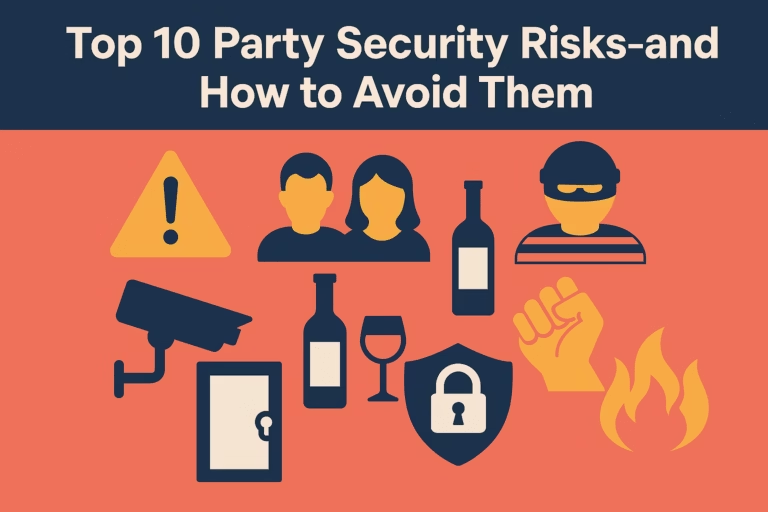- 18403 Pioneer Blvd Ste 207 Artesia, CA 90701-4615
- License No: PPO 122551
- 18403 Pioneer Blvd Ste 207 Artesia, CA 90701-4615
- License No: PPO 122551
How GPS Tracking Improves Patrol Security Guard Effectiveness
Security has always been about presence, visibility, and response. But in today’s fast-paced and technology-driven world, clients want more than just guards on-site — they want accountability, proof of service, and smarter protection. This is where GPS tracking for patrol security guards is transforming the industry.
By combining professional security with real-time technology, GPS tracking ensures patrols are efficient, transparent, and reliable. Whether it’s safeguarding residential communities, commercial sites, or special events, this modern tool is reshaping the way patrol security operates.

What is GPS Tracking in Security Patrols?
GPS (Global Positioning System) tracking is a technology that uses satellites to determine the precise location of a device in real time. In the security industry, guards often carry smartphones or GPS-enabled devices linked to a guard tour system.
Here’s what it means in practice:
Every patrol is automatically logged and time-stamped.
Security managers can see guard locations on a live map.
Clients can access reports that show exactly when and where patrols were performed.
Instead of relying on handwritten notes or paper logs, everything is automated and transparent. This reduces errors, eliminates guesswork, and gives both clients and managers confidence in the patrol process.
5 Key Benefits of GPS Tracking for Patrol Security Guards
1. Real-Time Monitoring
One of the biggest advantages of GPS tracking is knowing where guards are at any given moment. Security supervisors don’t have to wait until the end of a shift to see if patrols were completed. Instead, they can watch activity unfold live.
This level of oversight allows managers to:
Confirm guards are covering all required areas.
Respond quickly if a guard needs backup.
Identify gaps or delays in patrol coverage.
2. Proof of Service for Clients
For many clients, transparency is just as important as presence. GPS tracking creates a digital record of every patrol, including timestamps, routes, and check-in points.
This provides:
Peace of mind — clients see proof that guards are actively protecting their property.
Professional reporting — detailed logs can be shared with clients during reviews.
Credibility — showing accountability builds stronger long-term relationships.
3. Better Guard Accountability
Traditional patrols often rely on trust and manual reporting, which can lead to missed patrols or incomplete routes. GPS tracking eliminates this issue by ensuring guards stay accountable throughout their shifts.
With monitoring in place, guards are more motivated to:
Stick to their assigned patrol schedules.
Stay alert and engaged during their rounds.
Maintain high professional standards.
This doesn’t just improve performance — it raises the overall quality of security services.
4. Faster Emergency Response
Emergencies require quick action. With GPS tracking, managers can instantly locate the nearest guard to an incident and dispatch them immediately.
For example:
If an alarm goes off in a specific building, the closest guard can respond.
If a guard calls for backup, supervisors know exactly where to send help.
Response times improve dramatically, reducing risks for clients and staff.
This quick coordination can make a life-saving difference in critical situations.
5. Smarter Patrols Through Data
GPS tracking systems don’t just monitor — they also collect valuable data. Over time, this data helps security companies improve operations.
Some ways data can be used include:
Identifying areas that need more frequent patrols.
Adjusting routes to cover high-risk locations.
Balancing workloads across multiple guards.
With these insights, patrols become more efficient, cost-effective, and tailored to each client’s needs.
How GPS Tracking Builds Client Trust
Trust is everything in security. Clients want to know their investment in protection is worthwhile. GPS tracking provides that reassurance by showing clear evidence of service delivery.
Here’s how it strengthens trust:
Clients receive detailed reports proving that patrols were done on time.
Transparency demonstrates professionalism and commitment.
Security companies that use technology stand out as more reliable than competitors.
In a market where many providers make similar promises, offering GPS-enabled patrols is a way to differentiate your service and show clients that you take accountability seriously.
Common Myths About GPS Tracking in Security
Like any new technology, GPS tracking comes with misconceptions. Let’s clear up a few:
“GPS tracking invades guard privacy.”
In reality, GPS is used only during work shifts to ensure safety and accountability. It protects both the guard and the client.“It’s too expensive.”
Many think advanced tracking is costly, but it actually reduces losses, prevents missed patrols, and saves money in the long run.“It makes guards less trusted.”
GPS doesn’t replace trust — it strengthens it. Guards who follow routes correctly have nothing to worry about and can use reports to prove their professionalism.
The Future of Security Patrols with GPS
GPS tracking is just the beginning. Security companies are already combining it with other technologies for even greater effectiveness:
AI integration — predicting patrol needs based on past incidents.
Video verification — combining GPS with live camera feeds.
Body cams and IoT sensors — creating a complete security ecosystem.
As technology advances, clients will continue to expect smarter, more transparent protection. Companies that adapt now will stay ahead of the curve.
Serving commercial and residential clients across Rialto, CA, and beyond.
Conclusion
GPS tracking for patrol security guards is more than just a tool — it’s a complete upgrade to the way patrols are managed. It ensures transparency, builds trust, improves response times, and helps clients feel confident in their security provider.
If you’re considering hiring a security company, ask this simple question: Do your patrols use GPS tracking?
👉 Looking for GPS-enabled patrol security guards? Contact us today for trusted protection backed by real-time technology.


